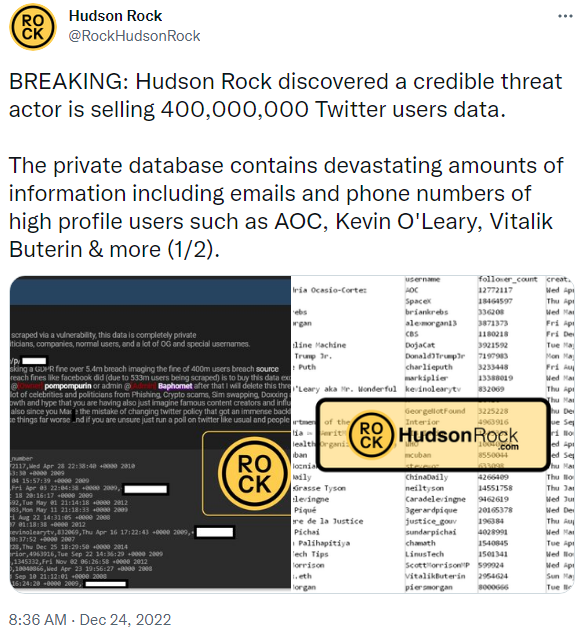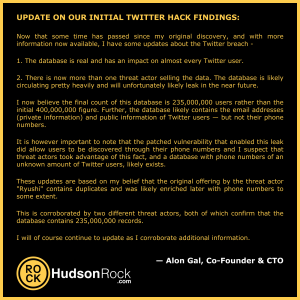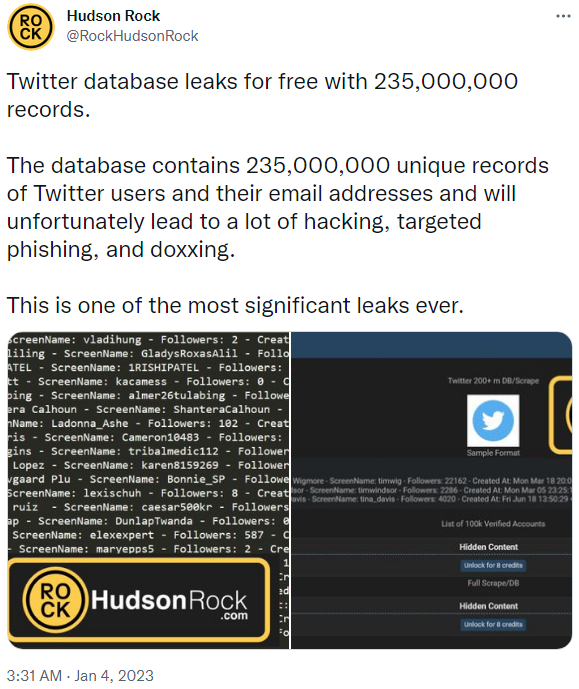According to the former head of security at Twitter it has terrible security. It also alleges that some of the company's senior-most executives have been trying to cover up Twitter's serious vulnerabilities, and that one or more current employees may be working for a foreign intelligence service. The scathing disclosure, which totals around 200 pages, including supporting exhibits -- was sent last month to a number of US government agencies and congressional committees, including the Securities and Exchange Commission, the Federal Trade Commission and the Department of Justice.
https://www.cnn.com/2022/08/23/tech..._content=2022-08-23T10:35:44&utm_source=twCNN
https://www.cnn.com/2022/08/23/tech..._content=2022-08-23T10:35:44&utm_source=twCNN
![[H]ard|Forum](/styles/hardforum/xenforo/logo_dark.png)


